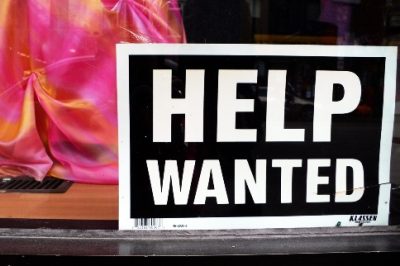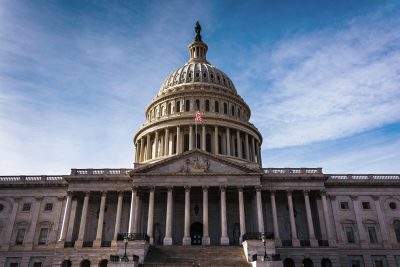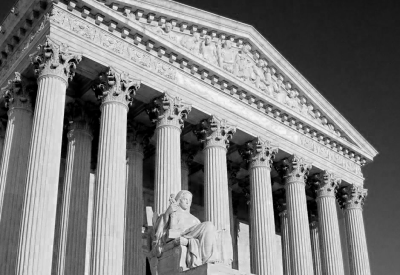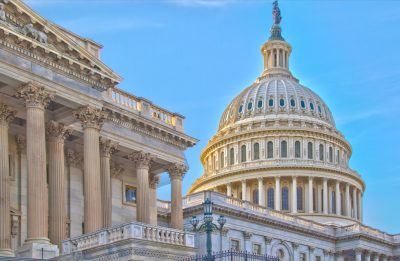Border Enforcement
Migration at the border is a multifaceted issue, challenging the U.S. to secure our borders while upholding the human rights of individuals seeking safety and better opportunities. Balancing national security with compassion and our legal obligations to asylum seekers presents intricate dilemmas, and we collaborate with policymakers to advance bipartisan, action-oriented solutions.
Beyond A Border Solution
- Asylum
- May 2, 2023
America needs durable solutions. These concrete measures can bring orderliness to our border and modernize our overwhelmed asylum system. Read…
Read More
Board of Immigration Appeals Rules Not to Reopen Old Deportation Cases
A decision by the Board of Immigration Appeals (BIA) last week provides yet more evidence that broken laws create broken government. By refusing to protect eligible applicants for adjustment of status from deportation, the Board eased the way for the Immigration and Customs Enforcement (ICE) to deport someone whose legitimate green card application is pending with United States Citizenship and Immigration Services (USCIS). Read More

New Report Details the Chilling Effects of Immigration Enforcement on Workers’ Rights
ICED OUT: How Immigration Enforcement Has Interfered with Workers' Rights, a new publication by the AFL-CIO, American Rights at Work Education Fund, and the National Employment Law Project (NELP), tells the often ignored story of our country's broken immigration system and the collateral damage immigrants and U.S. workers experience when Immigration and Customs Enforcement (ICE) prioritize enforcement over workers' rights. Read More

Help Wanted: Broken Immigration Policies Equal Broken Government Responses
This past week, ImmigrationImpact highlighted aspects of a recent Immigration Policy Center (IPC) report, Breaking Down the Problems, What’s Wrong With our Immigration System?. The report highlights the problems faced by American families, businesses, and workers, all caught in a broken immigration system. But the report also addresses the long-term effect of our broken immigration laws on government. Put simply, broken laws equal broken government. Read More

Labor Pains: How Our Broken Immigration System Hurts All Workers
While most employers are law-abiding, some unscrupulous employers have a secret weapon for keeping down wages and working conditions—our broken immigration system. Bad apple employers hire undocumented immigrants, subject them to unsafe working conditions, pay them less than the market wage, or don’t pay them at all. If undocumented workers file a labor complaint or try to form a union, the employer will threaten them with deportation or even call DHS to have the workers deported. Then the workers are whisked into detention or out of the country before they can seek remedies for the labor violations. Most employers don’t get punished for their misconduct, which puts unscrupulous employers at a competitive advantage over law-abiding employers. Read More

Risky Business: Our Broken Employment–Based Immigration System Jeopardizes the American Economy
BY CHARLES H. KUCK* Does Congress's continued failure to fix our broken employment-based immigration system jeopardize our economy, now and in the future? Yes, it does. If we don't have enough employment-based immigrant visas, the best and brightest from around the world will start going somewhere else. We are not only a nation of immigrants; we are a nation of successful immigrants. We attract those who are willing to work hard, better themselves, and strive for success. However, our legal immigration system has made the process of immigration to the United States so difficult, so full of uncertainty, and so lengthy, that folks are now choosing not to come. Read More

Family Ties: A Closer Look at the Problem with Our Family-Based Immigration System
The U.S. immigration system has always promoted family unity by awarding the majority of visas to the families of current U.S. residents, which ensures that close family members are not kept apart. The principle of family unity has long been a central tenet of our immigration laws and has contributed to the economic and social prosperity of our country and immigrant populations. Read More

Well-Intentioned Brookings Report Falls Short on Solutions
Following a series of roundtable meetings that brought together persons with very diverse opinions on immigration policy, Brookings Institute and the Kenan Institute for Ethics at Duke University recently released Breaking the Immigration Stalemate: From Deep Disagreements to Constructive Proposals. After witnessing the national immigration debates of the past few years, the lead authors—William Galston of Brookings, Noah Pickus of Duke, and Peter Skerry of Boston College—explained that they wanted to “address the problem rather than exploit the politics of the problem” and bring together academics and other experts with divergent perspectives to work through the differences in the room and reach a consensus. Furthermore, the group aimed to start its policy discussion in a different place than Congress has started, and hone in on the problems of past proposals as well as fill in the gaps and make linkages between policy issues. The results are mixed. Read More

Breaking Down the Problems: What’s Wrong with Our Current Immigration System?
While some characterize our immigration crisis as solely an issue of the 11 to 12 million unauthorized immigrants living in this country, our problems extend beyond the number of undocumented people to a broader range of issues. Read More

U.S. Supreme Court Considers “Collateral Consequences” for Immigrants in Criminal Cases
Today, the U.S. Supreme Court heard arguments in a case posing the question: “If a criminal defense lawyer tells his or her client not to worry about the immigration consequences of pleading guilty, but that advice is wrong and in fact the client will be deported as a result of pleading guilty, can the client withdraw the plea?” In this case, Padilla v. Kentucky, the Supreme Court of the State of Kentucky said no: even incorrect advice about the immigration result is not a sufficient reason to reopen a case because deportation (now known officially as “removal”) from the U.S. is a “collateral” consequence—that is, not something directly related to the criminal case. Kentucky’s lawyer argued today that the High Court should uphold that decision. Read More
Make a contribution
Make a direct impact on the lives of immigrants.


